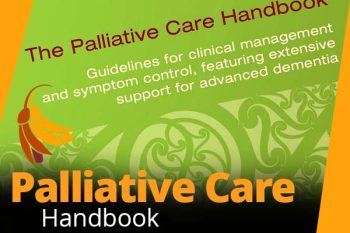What Is Grief?

Grief is the anguish, deep sadness or distress experienced after significant loss usually the death of a beloved person.
Each person’s experience of grief is unique, and these expressions can vary widely in intensity and duration.
Coping Strategies and Supportive Tips
Grief may present in a variety of ways including:
- Sleep problems, dreams, and nightmares
- Intrusive memories and feelings
- Tension, agitation, short temper
- Sadness, depression, and withdrawal
- Anger, fear, shock, disbelief
- Helplessness, relief, loneliness
- Frustration, confusion
- Forgetfulness, difficulty in concentrating, accidents
- Relationship problems in the whānau | family or with others
- Being preoccupied with thoughts of your loved one or experiencing hallucinations
- Upset stomach, headaches, palpitations, tightness in throat or chest
- Hollowness in the stomach
- Muscle weakness, lack of energy
- Oversensitivity to noise
Grief is a complex process that affects your thoughts, emotions, actions, and relationships. It’s important to acknowledge that everyone experiences grief differently, and there’s no right or wrong way to grieve.
Grief may come in waves – sometimes crashing all at once, bruising and hurting, feeling out of control. It can be rough and sometimes gentle, creeping up unexpectedly. Grief can be tough, messy and chaotic. It can sometimes feel like you’re going crazy.
Helpful tips as you navigate your grief journey:
Understand the Uniqueness of Your Grief
Your grief is personal and unique. It’s normal for others to react differently to loss. Embrace your individual process.
Acknowledge the Waves
Waves of grief come and go. They can be intense and overwhelming but know that they won’t always feel that way.
Memories Are Yours Forever
Don’t expect memories to fade. Cherish them as they are yours for as long as you live.
Life Accommodates the Loss
You won’t forget the one who has died, nor will you ‘get over it.’ You’ll learn to accommodate the loss into your life.
Good Days and Bad Days
Understand that there will be good days and bad days, and you will get through it. Talk to trusted individuals about your memories, worries, feelings, thoughts, and questions.
Take Time for Yourself
Time out is important. Find ways to relax and chill out. Smile, laugh, and enjoy moments. Life has its share of good things even during tough times.
Seek Support
Utilize the support around you. Talk to people you can trust and let your emotions out. It’s okay to seek help and not expect too much from yourself.
Prioritise Your Wellbeing
Keep safe, avoid taking risks, eat well, and stay active. Avoid making hasty major decisions.
When to seek help?
Are the intense feelings overwhelming or unbearable?
Consider seeking help if the intense feelings become overwhelming or unbearable, if there are multiple stressful factors impacting your ability to cope, if there’s no one to share your feelings with, if you find yourself using alcohol or drugs excessively, if your work/school performance is suffering, or if you notice behavioral changes in your children.
Remember, seeking help is a sign of strength, and support is available for you.








